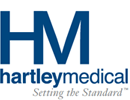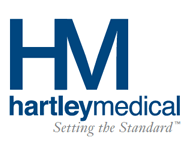I wish to discuss with you the recent passage of federal legislation as it relates to sterile compounding. In November 2013, President Obama signed a bill ““ HR 3204, The Drug Quality and Security Act ““ in response to the New England Compounding Center tragedy of 2012. With all of the fanfare and publicity surrounding this legislation, it distills down to a key point: pharmacies engaged in certain practices may opt to register with the FDA or not.
According to the recent legislation, a pharmacy or any entity can voluntarily register with the FDA. This causes concern for me because the entity that may be registered with the FDA as an outsourcing facility is not required to be a pharmacy! And, as this relates to a traditional compounding pharmacy, pharmacies that compound sterile and non-sterile preparations pursuant to patient-specific prescriptions are governed by the state boards of pharmacy; therefore, are not required to register with the FDA. Prior to the NECC-linked meningitis outbreak, the FDA recognized state boards’ oversight of pharmacy conduct.
There are two provisions of The Drug Quality and Security Act that I would like to mention: sections 503a and 503b. Section 503a applies to pharmacies engaged in sterile compounding and “requires that active pharmaceutical ingredients must have a USP/NF monograph or an FDA approved drug” and states that some drugs cannot be compounded, such as preparations that are difficult to compound, that are commercially available, or that have been removed from the market for safety and efficacy reasons. All of these stipulations are reasonable and are currently enforced for compounding pharmacies today.
Section 503b, establishes “Outsourcing Facilities,” a term that is not necessarily new, as FDA-recognized specialty pharmacy services, performing much like manufacturing, for large institutions, such as hospitals. There are many companies that have been providing non-patient specific sterile compounded preparations going back to 1995. Over time, there have been pharmacies engaged in large-scale manufacturing for various entities off the FDA radar; which resulted in section 503b ““ the establishment of guidelines for what an outsourcing facility can provide. According to 503b, outsourcing facilities can compound sterile drugs without patient-specific prescriptions and can voluntarily register with the FDA. However, these facilities must comply with current good manufacturing practices, also known as CGMP, and a pharmacist must supervise compounding; however the entity need not be a pharmacy. This, in my opinion, is a very big concern for the public.
Outsourcing facilities must comply with specific labeling requirements, submit regular reports to the FDA, undergo inspections by the FDA, and report all adverse events to the FDA. Interestingly, outsourcing facilities cannot compound drugs that have been removed from the market by the FDA, compound demonstrably difficult preparations, and provide compounded preparations to wholesalers for resale.
In summary, outsourcing facilities are legitimate entities that are able to fill a void for large-scale institutions such as hospitals or surgery centers. Outsourcing facilities can provide patient-specific and non-patient-specific medications. Traditional pharmacies, which may or may not register with the FDA, can continue providing patient-specific prescriptions pursuant to a valid prescription. As this relates to intrathecal drug therapy, traditional pharmacies can continue providing these medications to practices without FDA oversight. We will continue to remain vigilant to stay up-to-date and get the most current information that affects our practice ““ and we will have more to add as time goes on.
For more information, visit Hartley Medical’s Knowledge Center by clicking the button below.


Leave A Comment